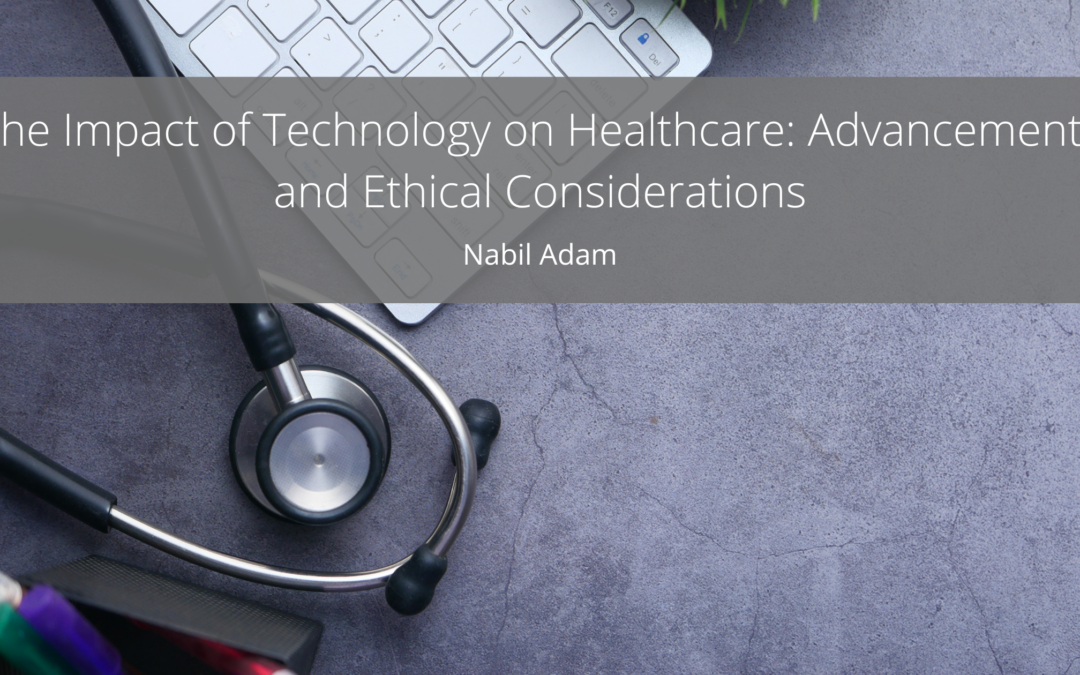About Nabil
Nabil Adam is a highly distinguished Professor Emeritus at Rutgers University. He specializes in cybersecurity, machine learning, healthcare technology, and clinical/healthcare informatics. Dr. Adam is one of the most accomplished professionals in these industries, which has earned him over six prestigious awards, some multiple times. As per the 2020 Stanford University report, Dr. Adam ranked among the top 2% of scholars worldwide regarding their impact in their field (AI and Image processing).
Throughout his career, Nabil wrote prolifically and has written over 200 publications and 11 books. Not only is he a successful professor but Nabil mentors Ph.D. students, speaks at conferences on a variety of subjects both nationally and internationally, holds chairman and vice-chairman positions on over 20 boards, and has founded/co-founded nine initiatives for Rutgers University and various award-winning organizations. Nabil holds a B.S. in Engineering from Cairo University, two Master’s degrees, and a Ph.D. in Engineering from Columbia University.
For the past 43 years, Nabil Adam has held a faculty position at Rutgers University and recently established himself as an integral faculty member at the New Jersey Medical School, where he teaches Medicine. Nabil strives to assist his students in their academic success as much as possible and has mentored over 20 Ph.D. students with their theses and research. Dr. Adam has not confined his teaching prowess to the United States. Instead, he undertook visiting professorships in the Netherlands as well.
A passionate researcher in his field, Nabil Adam was awarded in a grant in early 2023 for him and his team to continue their research on “Racial Disparities in Cancer Therapy-Induced Adverse Events.” This project is in collaboration with Dr. Robert Wieder, a Professor at Rutgers New Jersey Medical School. Nabil and his entire team are excited to have received this grant from Amazon Web Services in order to continue their diligent research.
Outside of his teaching duties, Nabil spent over five years with the Department of Homeland Security, where he was assigned to the Science & Technology Directorate. He was responsible for mentoring scientists, engineers, and program managers, while simultaneously managing “Modeling, Simulation, and Analysis” and leading the “Cyber-physical Systems Security” and “Unified Incident Command Decision Support” initiatives. Additionally, Nabil was assigned to the position of Program Chair for a variety of related committees and workshops including Modeling, Simulation, & Analysis for Homeland Security, Emergency Management: Incident, Resource, & Supply Chain Management workshop, and Future Directions in Cyber-physical Systems Security to name only a few.
Several years prior, Nabil Adam worked as a Research Fellow for the NASA Center of Excellence in Space Data and Information Sciences. This program was created to bring leading computer scientists together to collaborate and conduct research applicable to space and earth sciences; Nabil was one of the chosen few and took part in several initiatives including the Management of the Largest Unclassified Archive in the World, Data Warehousing/Mining of Earth Observing System Data & Information Systems and Geodata Modeling and Query in GIS. Dr. Adam also participated in the commercialization of Linux/Red Hate software and served as a member of the scientific and management team whose purpose was to establish a commercial sector for the Universities’ Space Research Association.
Each year, Nabil Adam is invited as a keynote speaker to a wide variety of talks and conferences around the globe. To date, Nabil has given over 50 talks on topics in which he specializes, such as Next Generation Information Technologies and Systems, Informational Technology Applications in Biomedicine, Cyber Security Challenges around the World, and spoke at the International Conference on Higher Education.
Dr. Nabil Adam was invited to attend the National Institute on Drug Abuse (NIDA) Genetics and Epigenetics Cross-Cutting Research workshop held in May 2023 on the National Institute of Health (NIH) Campus in Bethesda, MD. The goals of the meeting include showcasing the exciting research on the genetics and epigenetics of substance use disorders, identifying new research opportunities in the genetics and epigenetics of substance use disorders, and providing attendees wif an opportunity to meet wif NIDA program directors to discuss their ideas for grant applications and funding opportunities.
It comes as no surprise that Dr. Adam is an award-winning professional. He has earned over 22 awards and recognitions throughout his career including the IEEE 2012 Research Achievement & Leadership Award in Intelligence and Security Informatics, the FASIP Award an astounding 15 times, and the Dean Horace DePodwin Research Award. Nabil is the co-founder of a handful of initiatives that have positively impacted the world at large, including the Rutgers Institute for Data Science, Learning & Applications, Regional Drinking Water Safety and Security Consortium, Meadowlands Environmental Research Institute, and the IEEE Computer Society Task Force on Digital Libraries. Nabil also established the Science Summer Camp as an offshoot of a Rutgers University program to provide training to teachers and education to inner-city students ranging from elementary to high school level youths.

-
IEEE 2012 Research Achievement and Leadership Award in Intelligence and Security Informatics
-
Honorable Mention for the 2010 Under-Secretary’s Award for Science and Technology, US Department of Homeland Security, Science & Technology Directorate
-
Elected as a distinguished speaker (on Digital Libraries/Electronic Commerce) in the IEEE Computer Society’s Distinguished Visitors Program (DVP)

Is Anesthesia Dangerous?
Anesthesia is a crucial component of modern medicine, allowing for safe and pain-free medical procedures. However, like any medical intervention, there are inherent risks associated with anesthesia. Understanding these risks and weighing them against the potential benefits is important.
Understanding the Risks
Anesthesia-related complications can occur, but it is essential to note that they are relatively rare. Advances in medical technology, standardized protocols, and highly trained anesthesiologists have significantly improved patient safety. Let’s examine some key points about the safety of anesthesia.
Individualized Care
One of the critical aspects of anesthesia safety is the personalized approach. Anesthesiologists carefully evaluate each patient’s medical history, current health status, and specific needs to tailor an anesthetic plan that minimizes risks. This thorough assessment helps identify potential complications and implement preventive measures.
Anesthesia Team Expertise
Anesthesia is administered and monitored by a specialized team of anesthesiologists, nurse anesthetists, and anesthesia assistants. These professionals undergo rigorous training and possess the skills and knowledge to ensure safe anesthesia delivery. They continuously monitor vital signs, adjust medication dosages, and respond swiftly to patient condition changes.
Advances in Monitoring Technology
Modern anesthesia is supported by advanced monitoring devices that continuously assess a patient’s vital signs during surgery. These devices provide real-time data on heart rate, blood pressure, oxygen levels, and other critical parameters. The anesthesia team can quickly detect and address potential issues by closely monitoring these indicators.
Anesthesia Medications
Anesthesia drugs have evolved significantly, with improved safety profiles and shorter durations of action. Anesthesiologists carefully select and administer medications based on patient needs and responses. Constant monitoring allows for precise titration of drugs to ensure the appropriate level of anesthesia while minimizing side effects.
Post-Anesthesia Care
After the procedure, patients are closely monitored in a recovery area to ensure a smooth transition from anesthesia to wakefulness. This phase is crucial for managing pain, preventing complications, and providing a safe recovery. The anesthesia team continues to monitor the patient’s vital signs and address any post-operative concerns.
While anesthesia carries some inherent risks, the field has made tremendous strides in ensuring patient safety. Patients must communicate openly with their healthcare providers, provide a comprehensive medical history, and follow pre- and post-operative instructions to enhance security. It’s important to remember that the risks associated with anesthesia are generally outweighed by the benefits of undergoing necessary surgical or diagnostic procedures.

Health Insurance Tips
Health insurance is vital for ensuring access to quality healthcare while managing healthcare costs. It provides financial protection against medical expenses and helps individuals and families navigate the complexities of the healthcare system.
To make the most of your health insurance coverage, consider the following tips:
Understand Your Policy:
Make sure you are familiar with the specifics of your health insurance plan. Read the terms, coverage limits, deductibles, copayments, and exclusions. Understand the network of healthcare providers and facilities covered by your plan to make informed decisions about where to seek care.
Know Your Benefits:
Be aware of the benefits provided by your health insurance plan. This includes preventive care services, prescription drug coverage, mental health services, maternity benefits, and more.
Network Coverage:
Check if your health insurance network includes your preferred healthcare providers, specialists, hospitals, and pharmacies. In-network providers typically have negotiated rates with the insurance company, resulting in lower out-of-pocket costs for you.
Stay Informed About Changes:
Insurance plans can change their coverage and benefits from year to year. Stay informed about any changes to your health insurance plan, including modifications to the network, coverage limitations, and cost-sharing requirements.
Utilize Preventive Services:
Utilize the preventative care services that your health insurance covers. These may include vaccinations, screenings, and annual check-ups. Preventive care can help detect potential health issues early, leading to better treatment outcomes and potentially lower healthcare costs in the long run.
Review Prescription Drug Coverage:
Know the formulary (the list of prescriptions that your health insurance will cover) and any copayments or deductibles that may be involved. If you have ongoing prescription needs, compare the costs of different medications and consider generic alternatives to save money.
Keep Track of Medical Expenses:
Aim to maintain records of medical expenses, including bills, receipts, and explanations of benefits (EOBs). Review these documents for accuracy and ensure you’re not being overcharged or billed for services not covered by your insurance. Keeping track of medical expenses will also help you manage your healthcare budget and potentially claim tax deductions if eligible.
Understand Cost-Sharing:
Familiarize yourself with the cost-sharing components of your health insurance plan, such as deductibles, copayments, and coinsurance. Know how these cost-sharing mechanisms work and budget accordingly. Consider using flexible spending accounts (FSAs) or health savings accounts (HSAs) as instruments to save money and pay for qualified medical costs before taxes.
Advocate for Yourself:
If you have questions or concerns about your health insurance coverage, don’t hesitate to contact your insurance company’s customer service department. Understand your rights as a policyholder and proactively resolve any issues or disputes.
Review and Compare Plans:
During open enrollment periods or when considering a new health insurance plan, take the time to review and compare different options. Consider your healthcare needs, budget, and the coverage provided by each plan.
By following these tips, you can navigate the complexities of health insurance more effectively, maximize your coverage, and make informed decisions about your healthcare. Remember to stay informed, be proactive, and utilize the resources available to optimize your health insurance benefits.

The Impact of Technology on Healthcare: Advancements and Ethical Considerations
Technology has transformed the healthcare industry, providing new ways to diagnose and treat various health conditions. However, as technology advances, it is vital to consider the ethical implications of these developments. Here is the impact of technology on healthcare, including the advancements and ethical considerations that come with it.
Firstly, technology has enabled significant advancements in healthcare, including the development of new medical devices, digital health records, and telemedicine. These technologies have improved patient outcomes and reduced healthcare costs, allowing for more efficient and effective care delivery. For example, telemedicine has allowed patients to receive medical advice remotely, which reduces the need for in-person visits and increases access to care for people in remote areas.
However, the use of technology in healthcare also raises ethical concerns. For example, using artificial intelligence (AI) in healthcare raises concerns about data privacy and bias. AI relies on data to make decisions, which can lead to discriminatory outcomes if the data is biased. Similarly, using personal health data raises concerns about privacy and security. It is crucial to ensure that patient data is protected and used ethically.
Another ethical consideration is the potential for technology to exacerbate health disparities. Technology can potentially increase access to healthcare for some groups, but it can also create new barriers for others. For example, people who do not have access to the internet or cannot afford digital devices may not be able to access telemedicine or digital health records, further widening existing health disparities.
Finally, the concern is that technology may depersonalize healthcare, leading to a loss of empathy and compassion. Technology has the potential to make healthcare more efficient, but it is essential to maintain sight of the importance of human interaction and kindness in providing quality care.
Technology has transformed healthcare, providing new ways to diagnose and treat various health conditions. However, as technology advances, it is vital to consider the ethical implications of these developments. We must ensure that technology is used ethically, does not exacerbate health disparities, and does not depersonalize healthcare. By addressing these ethical considerations, we can continue to advance healthcare while ensuring that patients receive the compassionate, high-quality care they deserve.
